What is a business credit card?
A business credit card is different to a personal credit card (the one you’d use to buy the family TV) because it’s tied to your business or company rather than your own finances.
They come with business-style perks and keep your finances separate, but they actually offer tons more value for business owners.:
- Earning rewards points or even cashback on purchases and paying bills
- Managing cashflow during seasonal ups and downs
- Employees can have their own card, keeping transactions in one place
- Keeping your finances separate, and tax time easier
No matter how old or new, or how big or small your company is (it could be just you on the payroll), a business credit card can help squeeze more mileage out of your expenses, and streamline your business.
Why would you get a business credit card?
Business credit cards are a handy tool for simplifying your expenses, earning rewards and benefitting from extras. Here are some of the benefits:
- Control your cashflow year-round. By paying for larger expenses over time you can manage your cash in and out more evenly over the year. Or, you can take advantage of interest free days and pay the balance off each month to keep on top of your expenses and pocket the rewards you’ve earned.
- Separate business and personal finances. You can keep track of business purchases, transportation, supplies, sales and other necessities separate from your personal expenses. It makes life so much easier at tax time and simplifies your account management.
- Give your employees their own card. Your employees can be issued with cards (with caps to control their spending) to pay for fuel and other expenses. All your outgoing transactions are logged in one account.
- Business tools and features. Depending on the card you could be offered a number of handy business tools. You might be able to access easy exporting of data to accounting software like MYOB and Xero, and business budgeting apps. Your card might include travel features like insurances, airport lounge access, complimentary flights or discounts with partnering businesses.
- Earn rewards on business spending. You could earn rewards points on your business expenses paid for on your card. These can be redeemed for flights, accommodation, merchandise and services. Just remember to check the review and card T&Cs because conditions and points caps may apply. There are a range of points programs, from Qantas Frequent Flyer points to flexible bank programs like Amex Membership Rewards.
- Get a big rewards hit with introductory offers. Many lenders offer bonus rewards points when you sign up, which can go a long way towards flights, merchandise and gift cards – all of which boost your business’s cashflow. You’ll usually need to hit a minimum spend within a certain timeframe to unlock the bonus rewards points.
A snapshot of available business credit card features
-
✓
Bonus introductory Rewards Points on approval of application -
✓
Accounts Manager to help you get the most from your card -
✓
Travel and baggage insurance -
✓
Free airport lounge access -
✓
Memberships with hotel and dining partners -
✓
Complimentary subscriptions to affiliate apps -
✓
Extra points earned by spending at partnering business -
✓
24/7 concierge service
Important!
All credit cards are different, so check our review of the card and the card’s PDS and TMD before you apply to make sure you understand what your credit card offers.
Earning rewards on your business costs
Choosing a business credit card that earns points can help save your business money, or offer luxury perks that make travel easier. Here are two important things to know:
Cards earn points in different programs. Depending on the card, you might be enrolled in a frequent flyer program like Qantas or Velocity (Virgin Airlines) or a bank program, like Amex Membership Rewards, NAB Rewards or Westpac Altitude Rewards. You may have the option to transfer your points to other airlines programs,or from a bank program to a frequent flyer program.
Points are not equal between programs. All programs have their own points “value”, and that value can vary even between the item being purchased. For example, you’ll likely get more value using your points for flights than for gift cards. But, you can use some simple formulas to calculate the value of a program’s points.
How to work out the value of rewards points
Divide the item’s retail value or dollar cost by the number of points you’d need to redeem to get it. This will give you the value of the points for that redemption in that program.
- Example 1: Using the example of a one-night stay at The Darling at the Star in Sydney, you would divide $348 by 53,000 Qantas Points, to get 0.006. That means each Qantas Point in this redemption is worth $0.006, so for each 1,000 Qantas Points redeemed, you get $6 value.
- Example 2: Meanwhile, with the $100 Budget car hire gift card, redeemable for 18,010 Qantas Points, each Qantas Point is valued at $0.005. So, for each 1,000 Qantas Points redeemed here, you get $5 value.
How does the value of points spent on flights compare to physical goods?
I said earlier that flights and travel are often the best bang for your buck. To show you why, here is an example of different redemption options for Qantas Points:
Based on a redemption of 1,000 Qantas Points:
-
🔖
Products and gift cards typically offer $3–$6 value, -
🔖
Car rental and hotels typically offer $6–$8 value, -
🔖
Charity donations typically offer $8–$9 value, -
✈️
Economy flights typically offer $15–$20 value, -
✈️
Premium economy flights typically offer $20–$25 value, -
✈️
Business class flights typically offer $35–$50 value, -
✈️
First class flights and upgrades typically offer $40–$60 value.
As you can see, your best value comes from flights: up to $60 per point for flights compared to a maximum of $9 per point for merchandise.
Are you eligible for a business credit card?
Business cards will almost always require that your business has an ABN or ACN to apply. So, you’re eligible even if you’re a sole trader or freelancer, but there may be other requirements such as annual revenue.
In Australia, you might need to earn at least $75,000 and be eligible for GST to apply. You’ll need to show proof of income, and you may also need to have owned the business for at least 6 to 12 months.
To give you an idea of what other factors providers may look at when you apply for a business card, here are the eligibility requirements of American Express beyond the income criteria.
Among other things, you'll probably need to:
- Be over 18 years of age,
- Be an Australian citizen or a permanent resident,
- Have a good credit history and no payment defaults,
- Have a valid ABN registered for GST.
Meanwhile, NAB has the following requirements regarding eligibility for its business cards.
Applicants must:
- Be a sole trader, a business partnership with no more than two individual partners, a company with five or less directors, or a trustee of an eligible trust. Joint borrowers who are not partnerships, or partnerships where one or more partner is a company are not eligible to apply.
- Be at least 18 years old and hold Australian citizenship or permanent residency.
- Be registered for GST, and have a turnover of at least $75,000 per year.
- Have been in operation for at least 12 months, and have a valid ABN.
- Have a business and residential address in Australia.
- Intend to use the card where the purpose is wholly or predominately for business purposes.
- Have all ATO payments and loan repayments up to date.
Now you know the basics or what to look for and the differences between card types, let's dive into the potential benefits for your business.
What’s the difference between a business charge card and a business credit card?
Some business credit cards are actually charge cards. Here’s the difference:
- Credit card: has monthly spending limits and is charged interest
- Charge card: uncapped spending, and no interest to pay
Charge cards aren’t charged interest because you’re required to pay the balance to zero each month. These types of cards are less common these days, but do boast some good features and bonuses if that’s what you’re looking for.
Amex offers some truly rewarding business charge cards, such as the American Express Business Gold Plus card.
What about corporate credit cards?
Corporate credit cards are a different type of credit card designed for very large companies. While business credit cards suit small to medium businesses with up to 100 employees, corporate cards are for larger companies and corporations with a much higher annual revenue and hundreds or thousands of employees.
These cards offer integration into corporate accounting software, and often come with a designated customer service representative and other perks more suited to corporate use. If you're running a large business and need to manage the expenses of many departments, it might be time to consider an expense management card. These accounts offer you a way to handle employee expenses and payment.
What To Look For In A Business Credit Card
The key to choosing a business credit card is to find the card that matches your needs, your spending and repayment habits, and your budget. The worst mistake you can make is to pay a high annual fee for extras you won’t use.
So, let’s start with some things to consider before you dive into any applications.
Things to Consider Before Choosing Your Credit Card
Take a moment to reflect on your spending habits and financial goals to help narrow down the perfect card:
Frequently asked questions
Consider these questions before you apply.
Is there a cost for extra cardholders?
Some business credit cards allow extra cardholders, typically between one and 99. Whether there is a cost on top of the annual fee depends on the card; for example, the Amex Platinum Business card allows up 99 employee cards for free, while others might include two free cards and then a cost per cardholder (per year) after that.
How do I know if the annual fee is worthwhile?
You’ll need to determine if the cost of the annual fee makes the rewards points and perks worthwhile. While some business credit cards have fairly small annual fees, others might be in the thousands. Calculate the cost of the card against the amount you expect to use the card for each year, and any points you’ll likely earn to calculate the value of the card.
Annual fees on business credit cards may also be tax-deductible. That’s a question for your accountant before you apply.
Who is liable for the card?
Unlike personal credit cards, which place sole liability on the primary cardholder, business cards may offer a choice of liability structures. Joint liability can allow business owners to share liability, while with business liability, the business is held liable.
Can I claim the annual fees on a business credit card as a tax deduction?
Businesses can usually claim the annual fee on a credit card, but always check with your tax accountant first to make sure. There are other benefits to a business credit card at tax time, too.
Do all rewards cards have an introductory offer?
No, and they change frequently too, so you have to keep an eye out for new offers. Most often, introductory offers come in the form of bonus points. The value of these points alone can make the card worthwhile for the first year, as long as you’re able to use them wisely for your business.
Remember, bonus points are typically only available when you sign up as a new cardholder, and might have other fine print (so check the terms before applying).
How do I find the card’s features?
You’ll need to read our reviews and the card’s PDS and terms to really understand all the features of a card. Some are basic credit cards (generally with a lower annual fee) and some are bursting with features.
To decide if a card is right for your business, think about what you and your employees need from the card and weigh up if the value of the features is greater than the ongoing fees.
5 tips for making the most of your business credit card
- Pick a card that suits your business and spending patterns
- Monitor the spending on employee cards
- Use integrated software to streamline money management
- Strategically redeem points for the best value
- Avoid paying interest by paying the card off in full each month


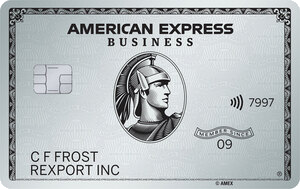





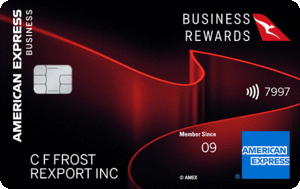
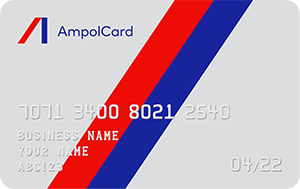
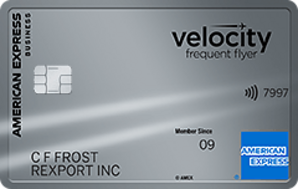
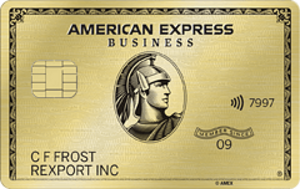










Jyoti
9 February 2025Pauline
11 February 2025Zainab sulemana
20 September 2024Pauline
25 September 2024Bruce
21 September 2023Pauline
25 September 2023Stef
18 September 2023Pauline
19 September 2023Luke Man
4 September 2023Pauline
5 September 2023Joshua binstead
6 December 2022Pauline
7 December 2022kristy
23 August 2022Pauline
24 August 2022Graham Stritzke
5 August 2022Pauline
5 August 2022alex
30 July 2022Pauline
3 August 2022Jino
6 July 2022Pauline
7 July 2022Penny
1 June 2022Pauline
2 June 2022kellie
11 May 2022Pauline
12 May 2022Karina
4 April 2022Pauline
4 April 2022Stoy
1 April 2022Pauline
4 April 2022Natasha
10 February 2022Pauline
11 February 2022